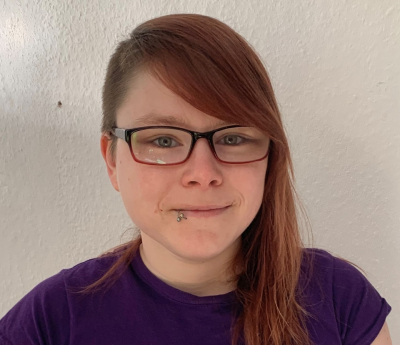- Graduate School GLOMAR
- PhD student members
- Anna Biastoch
Anna Biastoch
| Institution: | University of Bremen |
| Office: | MARUM Pavillon, room 0040 |
| Phone: | +49 421 218 - 65788 |
| E-mail: | [Bitte aktivieren Sie Javascript] |
| Other webpage(s): | Anna's MARUM web page |

PhD Project
Microbial degradation and transformation of particulate organic matter within the biological pump
The world oceans play a key role in the climate system and thus have potential for moderating change. They act as a big sink for atmospheric CO2 because of carbon transfers to the ocean interior via a number of processes, in particular the solubility and biological pumps. The “solubility pump” draws down atmospheric CO2 via physical and chemical processes, while the biological pump focuses on the biological processes. Dissolved carbon dioxide in the surface layer is used by photosynthetic active organisms, converted to particulated forms, exported to the depth and sequestered in bottom waters and sediments. The efficiency of the biological pump is determined by mechanisms of transformation, translocation, degradation and preservation of organic matter. Sinking organic particles in the water column serve as “microbial hotspots”. The decisive reasons for changes in the microbial colonization are the size and origin of aggregates. On average, there are 106 bacteria per aggregate, which is 100 up to 1000 times higher as in the surrounding water. However, little is known about the microbial degradation of particulated organic matter in the oceans.
Within my PhD, I focus on different aspects that govern the organic composition, the microbial colonization and metabolization of settling aggregates. With chromatographic methods aggregate specific lipid, carbohydrate and amino acid patterns should be uncovered. Furthermore, I try to find a linkage between microbial aggregate colonization and carbon degradation rates. The most interesting question about aggregate degradation is: “How microbes use the available carbon and nitrogen sources in aggregates and what are the main metabolic products?” This question defines the main stage of my PhD project. With labelling methods and different analytic tools, like Nano Sims, Proteomics and Metabolomics, I try to figure out the way of microbial metabolization.
Thesis Committee
| Prof. Dr. Jack Middelburg | University of Utrecht, NL and Excellence Chair at MARUM, University of Bremen |
| Prof. Dr. Morten Iversen | MARUM, University of Bremen and AWI Bremerhaven |
| Prof. Dr. Kai-Uwe Hinrichs | MARUM, University of Bremen |
| Dr. Jan-Hendrik Hehemann | MARUM, University of Bremen and MPI Bremen |


